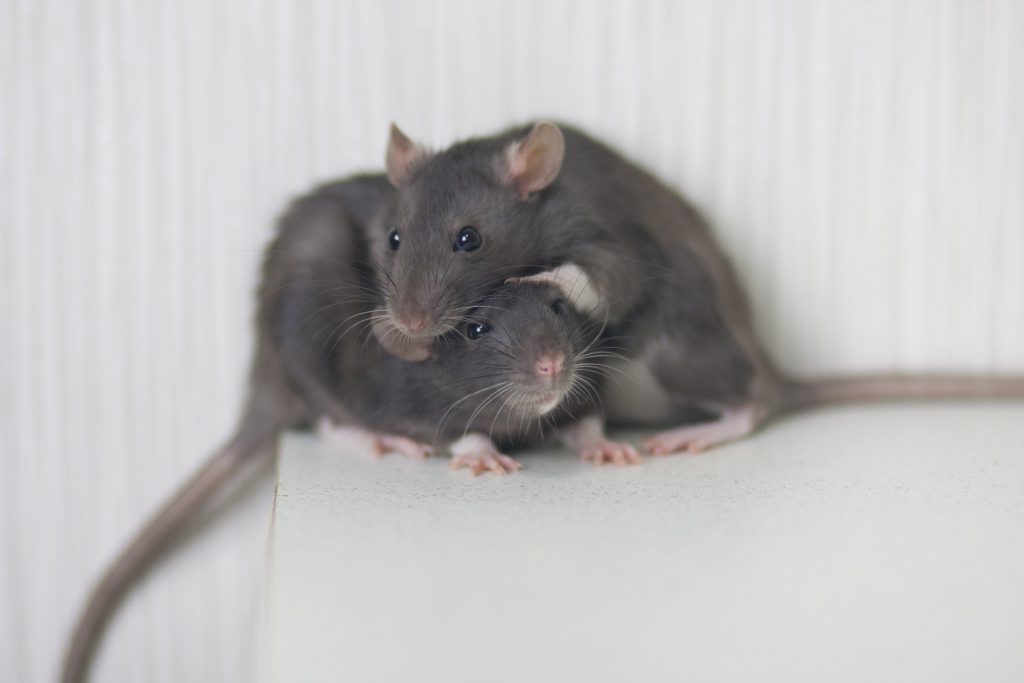Rats, which are often thought of as pests, are very flexible animals with interesting biology and behaviour. There’s more to these rodents than meets the eye, even though they are often linked with dirty cities. For successful pest control and prevention, you need to know how they live and what they do.
1.An Amazing Reproduction
Rats have an amazing ability to reproduce which is shown by how many babies they have. At most, a female rat can have twelve pups in one litter. In a year, she may have more than one litter. This very fast rate of reproduction is one reason why rat numbers can grow very quickly if nothing is done.
2.Navigators who work at night
The main time rats are busy is at night, when they are called “nocturnal.” This helps them stay away from many enemies so they can go about their business of scavenging and building nests without much trouble. They can see very well at night and have a very good sense of smell, which help them find food and protection.
3.Feeding on the Spot
Rats eat a lot of different things when they get the chance. They can eat many different things, from grains and nuts to fruits, pests, and even meat. Because they can respond to different food sources, they do very well in both cities and rural areas.
4.Living in a community
It is common for rats to live in groups, or colonies. These colonies, or rat packs, are set up in a hierarchy, with the most powerful people leading the pack. They can work together to find food, take care of their young, and protect their area because of how their society is set up.
5.Smart People Who Built Nests
Rats are very good at building nests. They use a variety of things, such as paper, fabric, padding, and plants, to make nests that are warm and hidden. Their young live in these nests, which protect them from predators and the weather.
6.Good at navigating
Rats are naturally good at finding their way around. Rats leave clear smell trails and clear paths so they can talk to other rats and find their way back to their nests. They are good at exploring their area because of how they act.
7.Naturally Chews
Rats have sharp incisor teeth that are always getting longer. They have to gnaw on different things so these teeth don’t get too big. Rats will chew on stuff like electrical lines, wooden structures, and even plumbing pipes. This is bad because rats often cause damage to homes.
8.Carriers of disease
Rats may not be dangerous in and of themselves, but their urine, feces, and saliva can carry and spread diseases to people. Pest rats are to blame for diseases like Leptospirosis and Hantavirus.
9.Very flexible
Rats are known for being able to live in a variety of places. Rats can live and grow in a lot of places, from the busy city streets to the quiet barns in the country. Because they can adapt to new situations, they are hard to get rid of as a pest.
10.Learners Who Hurry
Rats are smart and learn new things quickly. Over time, standard traps and deterrents may not work as well because they can quickly connect certain sounds or smells with danger. Because they are so smart, these cunning mice often need professional pest control to get rid of them.
Rat biology and habits are important for both homeowners and pest control experts to know. Learning more about these animals makes it easier to take effective steps to keep them from spreading and control them. Rat invasions can be controlled by knowing what to look out for, being careful, and getting professional help. These sneaky rodents can cause a lot of damage in our homes and communities.
Rat Control Newmarket, our technicians have the knowledge as well as years of experience in handling rat problems. Whether it is an infestation or an intrusion, our licensed and fully insured teams of technicians handle the problem swiftly and discreetly.
